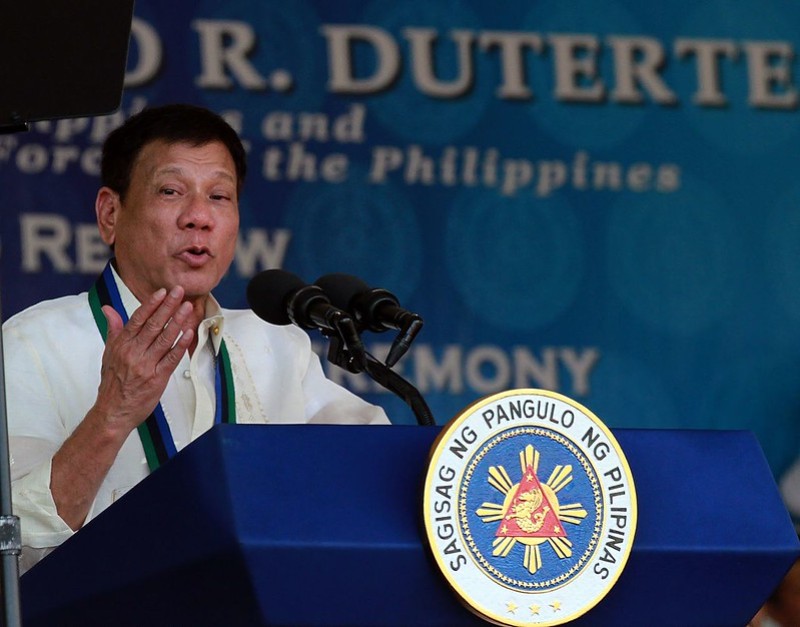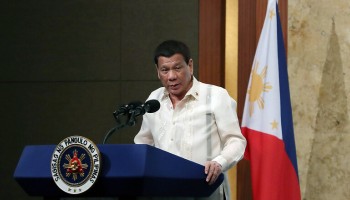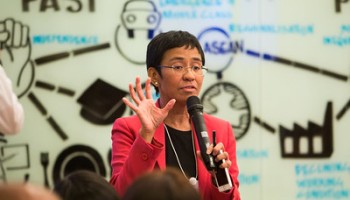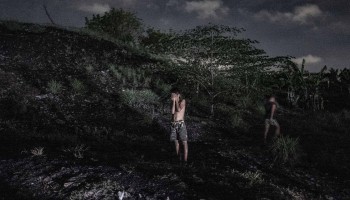President Rodrigo Duterte has spearheaded a hardline approach in dealing with people who use drugs, resulting in thousands of deaths.
In 2017, Duterte was named OCCRP Person of the Year in Organized Crime and Corruption, sharing the “honor” with a rogue’s gallery of shady individuals and institutions dating back to 2012.
The Hague-based tribunal said its probe was justified because the “specific legal element of the crime against humanity of murder” has been met in the crackdown that left thousands dead.
The ICC said that Duterte’s drug war “cannot be seen as a legitimate law enforcement operation” but rather “a widespread and systematic attack against the civilian population.”
The president’s methods have received global attention for targeting people with drug dependencies, rather than the organized crime groups who oversee drug production, cultivation, transportation, and distribution.
"If you’re still into drugs, I will kill you, don’t take this as a joke. I’m not trying to make you laugh, son of a bitch, I will really kill you,” Duterte said in 2016, according to ICC documents explaining the decision to authorize the investigation.
“The war on drugs became a war on the poor,” journalist Maria Ressa says in A Thousand Cuts, a 2020 documentary detailing the conflict between Duterte's government and the Filipino press as it covered the president’s methods in combating the war on drugs.
One focus of ICC’s investigation will be police killings in Davao from 2011 to 2016. Duterte was the mayor of Davao from 2013-2016 when a branch of the city’s police dubbed the “Davao Death Squad” killed hundreds of people for small-scale drug dealings and other petty crimes.
Human rights groups estimate the number of deaths in the Philippines’ war on drugs to be between 27,000-30,000, according to Al Jazeera. This figure is said to include children and innocent victims.
Duterte and the Philippine police, however, have shown little empathy towards the bodies left in the wake of their war on drugs.
A Philippine police report in 2017 referenced 16,355 “homicide cases under investigations” as accomplishments in the drug war, according to Al Jazeera.
Duterte, meanwhile, told his top customs official in 2020 to simply execute drug smugglers and said “I’ll back you up, and you won’t get jailed,” according to a previous article by OCCRP.
The president has not responded well to the ICC criticizing his methods in the past. In 2019, he officially withdrew the Philippines as a signatory of the Rome Statute, the international treaty which grants the ICC jurisdiction to investigate and prosecute citizens of its member states for various crimes against humanity.
He has also retaliated against media who portray him in a negative light.
In 2018, Duterte’s government subpoenaed and tried to revoke the operating license of Rappler, a Philippine online news website critical of the president’s policies. The move was internationally interpreted as an attack on press freedom.
Ressa, the CEO of Rappler, was charged by the government with cyber-libel in 2019, charges which drew international condemnation and were described by Ressa as “politically motivated.”
Asked by journalists to comment on his policy on critical media, Duterte said: “You are the critical ones. If you end up dead, it’s your fault. It means nothing to me.”






